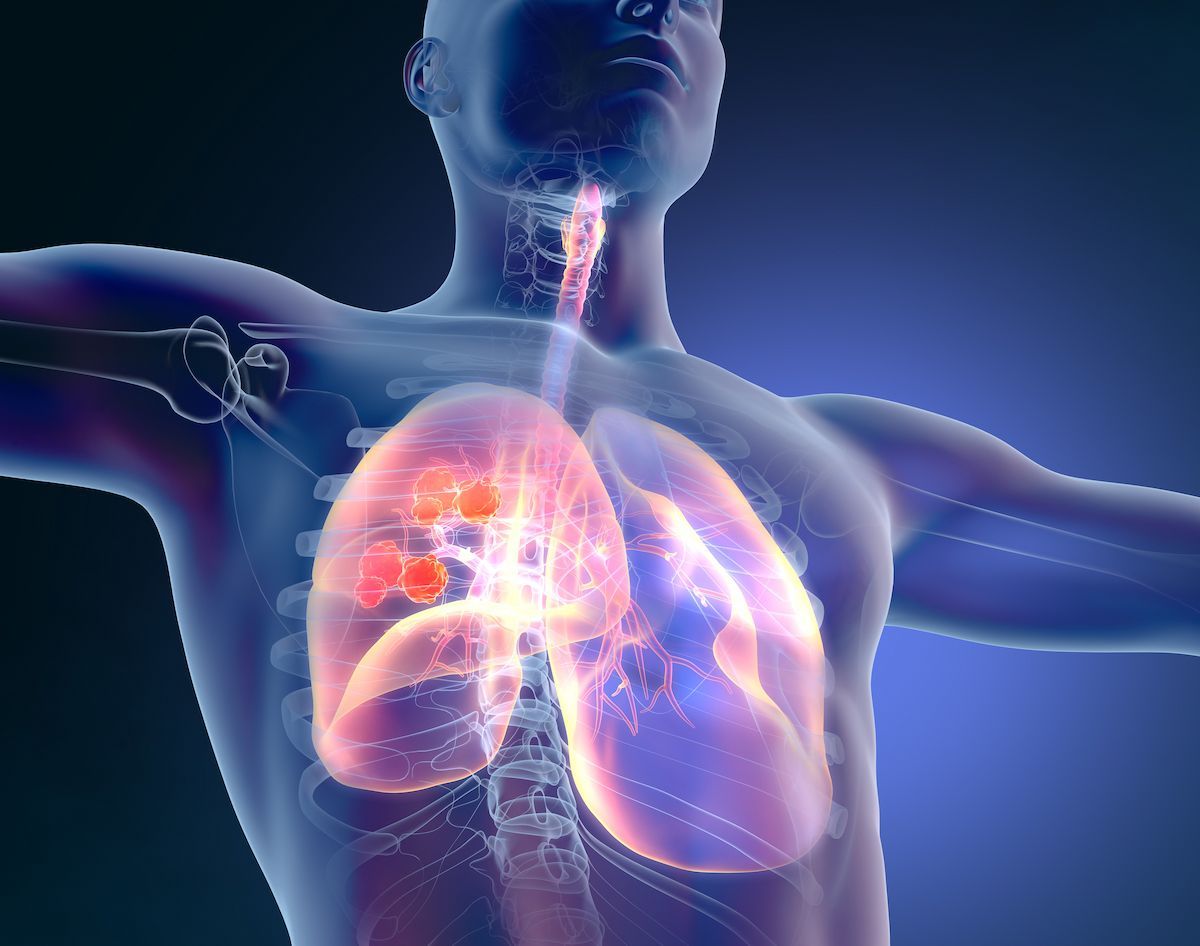MYTX-011 Is Given FDA Fast Track Designation for cMET Overexpressing NSCLC
MYTX-011 is being assessed as part of the phase 1 KisMET-01 study in patients with locally advanced, recurrent or metastatic non–small cell lung cancer.
"It’s important we continue investigating the potential of MYTX-011 for patients with NSCLC who need new approaches to treating their cancer as many either do not respond to, or develop resistance to, existing treatment options," according to Rebecca Heist, MD, MPH.

The FDA has given fast track designation to MYTX-011 in patients diagnosed with cMET overexpressing non–small cell lung cancer (NSCLC), according to a press release from Mythic Therapeutics.
The treatment covers patients with NSCLC who have any level of cMET expression including low to intermediate. The antibody-drug conjugate (ADC) utilizes FateControl technology, allowing it to navigate in cells and possibly result in better anti-cancer therapy delivery to tumor cells and less damage to healthy cells. The strategy goes beyond linker-payload mechanisms and should improve the potency of ADCs vs select molecular targets and profiles.
The agent is composed of a Ph-dependent, anti-cMET antibody, as well as the anti-microtubule agent monomethyl auristatin E.
MYTX-001 is being assessed as part of the ongoing, first-in-human, open-label, multicenter, dose escalation/expansion phase 1 KisMET-01 study (NCT05652868), which includes patients with locally advanced, recurrent or metastatic NSCLC.
“Receiving fast track designation from the FDA reinforces our focus on addressing the unmet need of patients living with cMET-positive NSCLC, who currently have few effective treatments,” Brian Fiske, PhD, chief scientific officer and co-founder at Mythic Therapeutics, said in the press release. “We are proud of this significant milestone as it highlights the potential of MYTX-011, which is enabled by our FateControl platform, to expand ADC therapy to more NSCLC patients.”
The KisMET trial has an estimated enrollment of 150 patients. The primary outcome in part 1 of the study is dose-limiting toxicity, with tumor response rate comprising the primary end point of part 2. Secondary end points of part 1 include overall response rate, duration of response, time to response, disease control rate, and overall survival.
To be eligible for part 1 of the study, patients are required to have histologically or cytologically confirmed, locally advanced, recurrent or metastatic disease that has been treated with all available therapies; investigators note that there is no limit on the number of prior therapies.
There are several requirements for enrollment in each of the cohorts included in part 2 of the study. Cohort A required that patients have high cMET expression by immunohistochemistry (IHC) via central laboratory testing; cohort B requires intermediate cMET expression by IHC via central laboratory testing; cohort C requires cMET overexpression; cohort D includes those who did not meet IHC inclusion criteria but have known MET amplification or exon 14 skipping mutations; and cohort E includes those with cMET expression who have received no more than 3 previous lines of therapy.
In general, patients need to have at least 1 measurable lesion by RECIST 1.1 criteria and an ECOG performance status of 0 or 1. Exclusion criteria include radiation to the lung within 2 months of previous screening; major surgery within 28 days of first study dose; untreated, uncontrolled central nervous system metastases; a history of interstitial lung disease or pneumonitis requiring systemic steroids; clinically significant illness; active infection necessitating intravenous antibiotics, antivirals, or antifungal medications; neuropathy exceeding grade 1; active or chronic corneal disorder; and history of cirrhosis, hepatic fibrosis, esophageal or gastric varices, or other clinically significant liver disease.
“While a small fraction of NSCLC tumors highly express cMET, a much broader patient population have tumors which overexpress cMET, but at lower levels,” said KisMET-01 study investigator Rebecca Heist, MD, MPH, associate professor of medicine at Harvard medical School and Lee Albright and Nile Albright MD Endowed Chair in Clinical Cancer Research at Massachusetts General Hospital. “It’s important we continue investigating the potential of MYTX-011 for patients with NSCLC who need new approaches to treating their cancer as many either do not respond to, or develop resistance to, existing treatment options.”
Reference
Mythic Therapeutics receives FDA fast track designation for MYTX-011 for patients with non-small cell lung cancer (NSCLC) with cMET overexpression. News release. Mythic Therapeutics. September 26, 2023. Accessed September 27, 2023. https://bit.ly/3LAHYC4